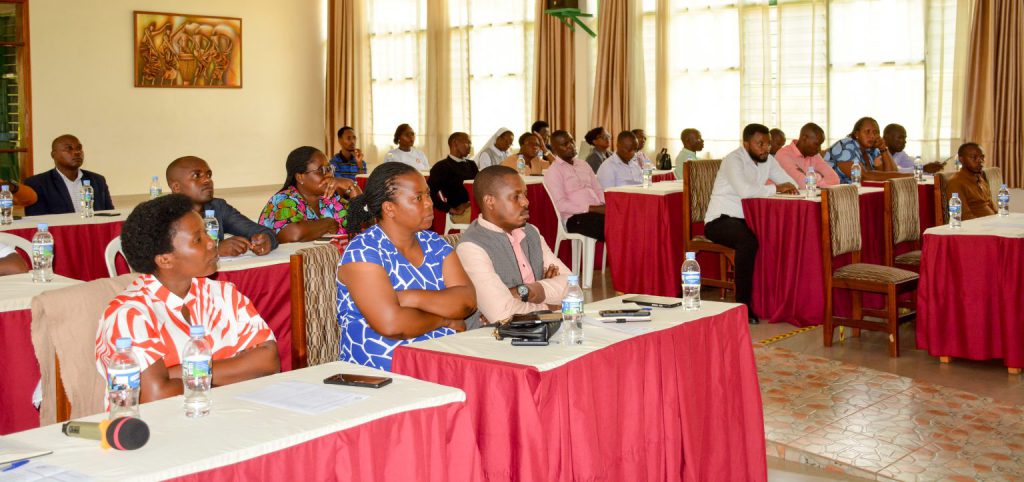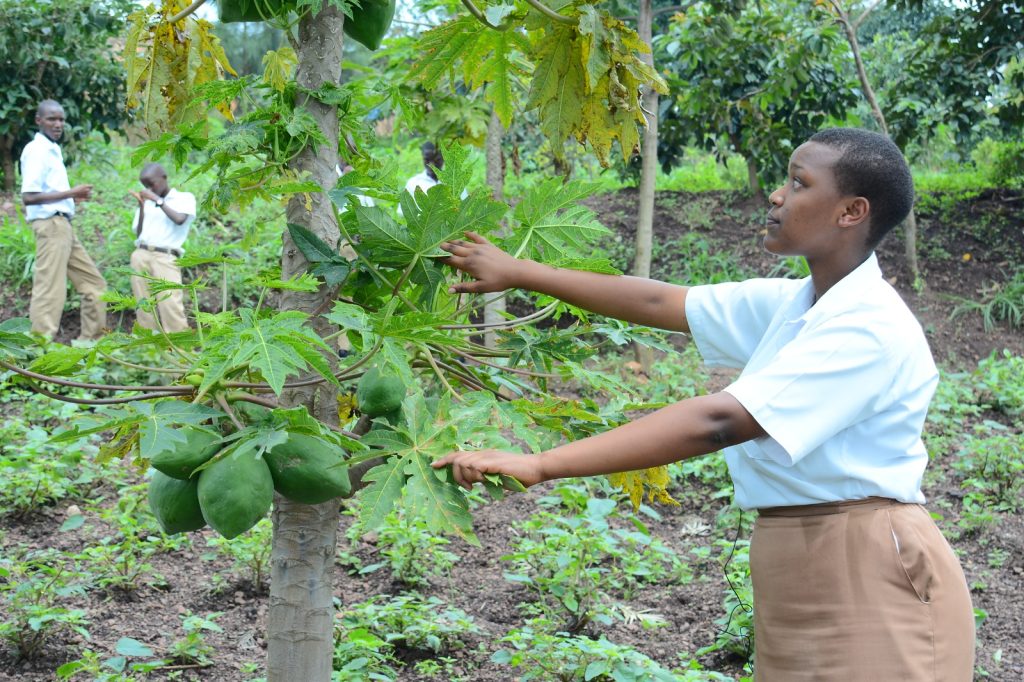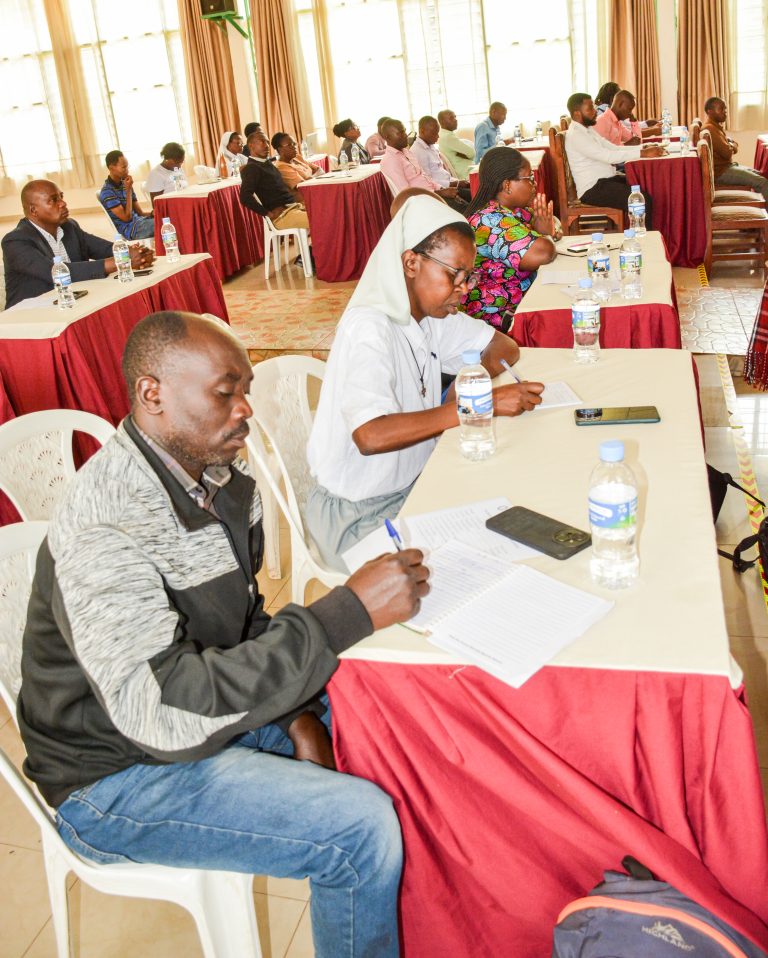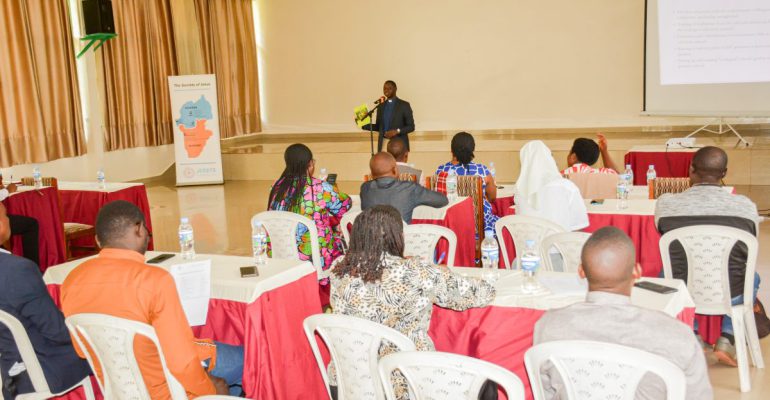On September 19, 2025, Jesuit Urumuri Centre (JUC) hosted a meeting at its premises with 29 secondary school directors to discuss the Environment Conservation and School Feeding Program.

Launched in 2022 as a pilot phase, JUC, in collaboration with 14 partner schools, planted fruit trees in school farms for two main purposes. The project responds to Pope Francis’ call in his encyclical Laudato Si’ to care for our common home and is also intended to support the government’s school feeding program.

The pilot phase has already borne fruit—literally and figuratively. Schools are now harvesting papaya, oranges, passion fruit, and avocados, which are added to students’ meals. Encouraged by this success, JUC has identified 29 additional schools to join the initiative and expand the planting of fruit trees on their farms.

In his welcome address, JUC Director, Fr. Patrice Ndayisenga, SJ, shared the story of how this project was conceived. In 2018, during a school visit, he learned that some students depend almost entirely on the meals they receive at school, as they often go without food at home. He recalled the case of one student who returned from a weekend without eating; when food was served at school, his stomach could not handle it, and he was hospitalized. “You can imagine, the parent of such a child, who cannot even feed the child at home, might be unable to pay the fees required for their child to be included in the school feeding program,” Fr. Patrice explained.
This heartbreaking encounter sparked in him a strong desire to contribute to the school feeding program in any way possible.

During this second phase of the project, JUC has allocated 50–100 fruit trees to each school, to be planted in their farms. Once the trees mature and fruit is harvested, students will receive fruit as part of their daily meals. JUC also hopes that surplus fruit will be sold at local markets, with the proceeds directed towards covering school feeding fees for vulnerable children.
Fr. Patrice concluded his remarks by appealing for the collaboration of school directors, particularly in caring for and ensuring the protection of the trees; “JUC is committed to providing educational support, supplying fruit trees for planting, and making regular visits to meet with environment clubs and monitor the progress of the trees,” he said. He then urged the directors to take ownership of the project: “The trees we will provide will benefit your students in the long run and for years to come. I ask you to do all that is necessary to safeguard them so that we are able to reach our goal.”
Moving forward, the directors are to select two onsite facilitators for each school, who will be invited for a workshop at JUC premises then afterwards go and implement the project at schools.
Rooted in the spirit of Laudato Si’, JUC spearheads AJAN’s mission of nurturing a caring and compassionate African generation, full of hope and committed to safeguarding our common home. By combining environmental conservation with school feeding, the project not only restores creation but also instills values of solidarity, responsibility, and hope among young people, equipping them to protect both their peers and the planet.
For More Information visit JUC Website: https://www.juc-rwb.org/fruitful-partnerships-expanding-jucs-environment-conservation-and-school-feeding-project/
By, Henriette Mushimiyimana,
JUC Communications Officer.


Comments are closed.